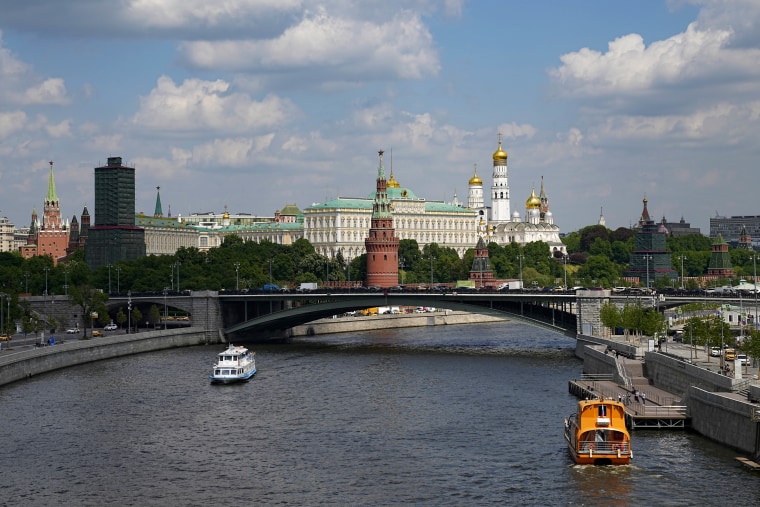Russia has defaulted on its foreign debt for the first time since the 1917 Bolshevik Revolution, as sweeping sanctions over its war in Ukraine effectively cut the country off from the global financial system and rendered its assets untouchable to many investors.
Russia faced a deadline of Sunday night to meet a 30-day grace period on interest payments originally due May 27. Some bondholders said they had not received the overdue interest on Monday following the expiry of the key payment deadline.
The Kremlin, which has the money to make payments thanks to oil and gas revenues, swiftly rejected the claims, and it has accused the West of driving it into an artificial default.
The U.S. Treasury Department ended Russia’s ability to pay its billions in debt back to international investors through U.S. banks this year. A Treasury Department spokesperson told Reuters at the time that the action was meant to force Russia to draw down its domestic dollar reserves to further curtail its spending on its war against Ukraine.
Russia says that any default is artificial because it has the money to pay its debts but that sanctions have frozen its foreign currency reserves held abroad.
Russia’s Finance Ministry said it made the payments to its onshore National Settlement Depository in euros and dollars, adding it had fulfilled obligations.
In a call with reporters, Kremlin spokesperson Dmitry Peskov said the fact that payments had been blocked because of Western sanctions on Russia was “not our problem.”
But Tim Ash, senior emerging market sovereign analyst at BlueBay Asset Management, tweeted that the default “is clearly not” beyond Russia’s control, saying sanctions are preventing it from paying its debts because it invaded Ukraine.
Investors have expected Russia to default for months. Insurance contracts that cover Russian debt have priced an 80% likelihood of default for weeks, and rating agencies like Standard & Poor’s and Moody’s have placed the country’s debt deep into junk territory.
Russia owes about $40 billion in foreign bonds, about half of that to foreigners. Before the start of the war, Russia had around $640 billion in foreign currency and gold reserves, much of which was held overseas and is now frozen.
The Kremlin can still borrow rubles at home, where it mostly relies on Russian banks to buy its bonds.
Russia hasn’t defaulted on its international debts since the Bolshevik Revolution more than a century ago, when the Russian Empire collapsed and the Soviet Union was created. Russia defaulted on its domestic debts in the late 1990s but was able to recover with the help of international aid.
In normal circumstances, investors and the defaulting government typically negotiate a settlement in which bondholders are given new bonds that are worth less but that at least give them some partial compensation.
But sanctions bar dealings with Russia’s Finance Ministry. And no one knows when the war will end or how much defaulted bonds could wind up being worth.
In this case, declaring default and suing “might not be the wisest choice,” Jay S. Auslander, a top sovereign debt lawyer at the firm of Wilk Auslander in New York, told The Associated Press. It’s not possible to negotiate with Russia, and there are so many unknowns, so creditors may decide to “hang tight for now.”
